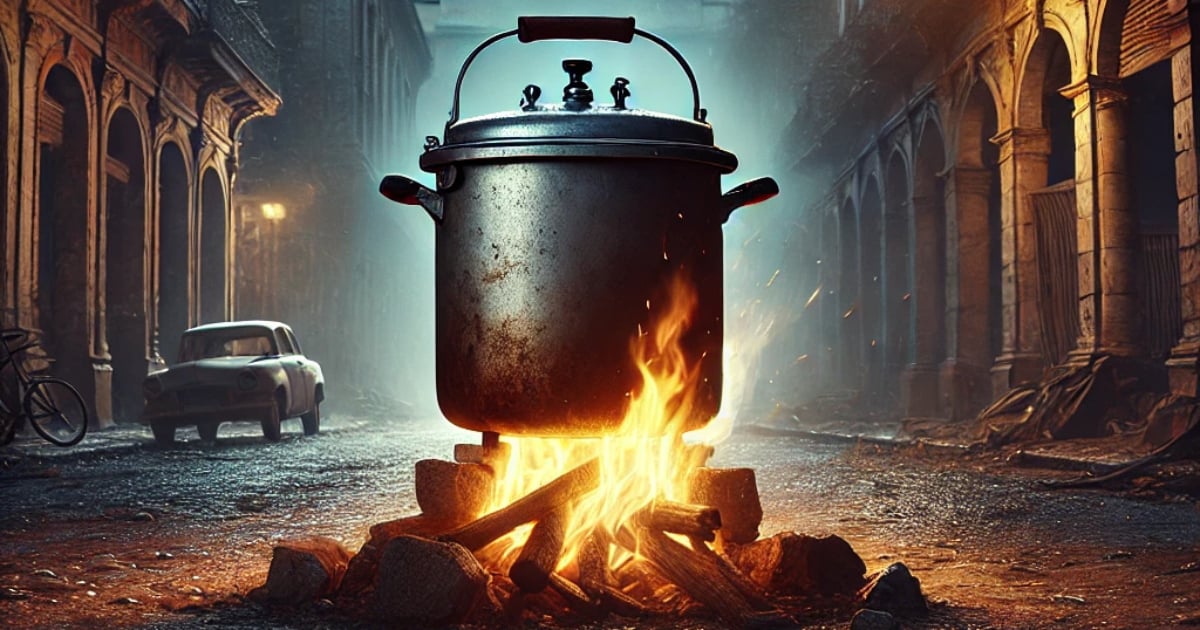The enactment of Decree 110, which establishes a "contingency energy regime" allowing planned blackouts lasting over 72 hours, has sparked a wave of social media outrage. Billed as a necessary step to address Cuba's unprecedented energy crisis, many citizens view this measure as yet another blow to their already struggling quality of life.
Comments on Facebook, particularly in response to a news post by CiberCuba, capture the profound frustration and exhaustion felt by many Cubans. Expressions like "this is not living, we're on edge" and "we can't take this anymore, it's slow torture" encapsulate the sentiment of a populace grappling with compounded issues such as food shortages, lack of medicine, and unreliable power.
The Human Toll of Extended Blackouts
Widespread concern about the physical and mental health impacts of this policy has been voiced repeatedly. Additionally, comments highlight feelings of abandonment by the authorities. While some call for organization and protest, others express resignation or fear of backlash.
The strategy to categorize blackouts as part of a "contingency regime" has further incited indignation, with many interpreting it as a formal acknowledgment of the crisis. One user summarized this sentiment, remarking, "They are legalizing blackouts so no one can protest without being accused of breaking the law." This echoes the over 1,600 comments CiberCuba's Facebook post garnered, reflecting fears that this measure serves as a tool for social control rather than a solution to energy issues.
Public Discontent and Criticism
Cubans are not only critical of the decree itself but also of the authorities' lack of accountability. "The people pay for the poor management from those at the top," noted one Cuban internet user, capturing the sentiment of a population finding excuses instead of solutions. The uneven application of blackouts has also been questioned. "It always affects the same sectors; hotels and privileged areas don't suffer," another user pointed out.
Amidst the anger, sarcasm and dark humor have emerged, as seen in one comment: "Cuba is rapidly moving towards the primitive community. Before 1492, everyone lived happily by the light of the bonfire," remarked a Cuban in response to the news.
Voices of the People
Below are some of the comments shared on our Facebook page, reflecting Cuban sentiments regarding the approval of Decree 110 by the Council of Ministers:
"We're going to go crazy. They've got us on edge. This is no life... eating cold food because there's no gas. The lousy food we find, we can't sleep or live, they might as well kill us if we're already dead. It's slow torture."
"Take to the streets and demand the government's resignation. They can't imprison all of us."
"It's our fault for allowing them to violate our rights. They strip us of a constitutional right to basic services like electricity, health, and education."
"Enough, it's time for us all to unite, the whole people. When a country unites, no one can defeat it."
"We deserve this for not fighting for our rights. We live playing the victim, and we're to blame for everything they do to us."
"If you're going to cut it, don't put it back. Let's pick up the electrical cables. If we keep going, electricity will become a legend."
"I agree with the resolution, but only if it's fair. I don't understand why hotels, Havana, and provincial capitals aren't affected. If it's for the country, it should be for everyone."
"The solution is in our hands: don't go out, don't go to work, don't send kids to school. But a couple of people can't make a nation."
"Legalizing the blackout. They're using the law to silence the people."
"Now those who protest against the blackouts are acting against the law. They've got the grounds to arrest, prosecute, and convict."
"My God, what madness. I can't understand how they can do this to us."
"There should be a decree for the regime to leave the country in 48 hours. All we can do is wish the people strength to keep surviving."
"Why does the public always have to pay for the poor work of those at the top? I'm not responsible for the maintenance of the thermoelectric plants."
"New selective energy contingency decree. Many sectors won't suffer, like hotels and tourist complexes. In short, Cuba is moving forward, but we know where to."
"Contingency is the disrespect for the Cuban people. We have no life with these blackouts and no food. We're going to die in misery."
"No one cares what happens to us. This is torture."
"We've endured 100-hour blackouts and they're still hitting us. How much more do we have to endure?"
"Just end everything already. This government doesn't respect us. Everything they do is to destroy us more."
What Lies Ahead for Cubans?
Decree 110 has once again highlighted the disconnect between the government and the people's needs. In a climate of growing desperation, many Cubans wonder how much more they can endure. As one CiberCuba reader noted, "We live playing the victim, but we're to blame for allowing it. Until we decide to change, nothing will change."
While the government insists these measures are temporary and necessary, public perception is that each new decision exacerbates the crisis instead of resolving it. Calls for real, sustainable changes grow louder by the day, though answers seem distant.
In a nation where the energy future looks increasingly uncertain, this decree dims not just the lights in homes, but also the hopes of millions of Cubans yearning for a better life.
